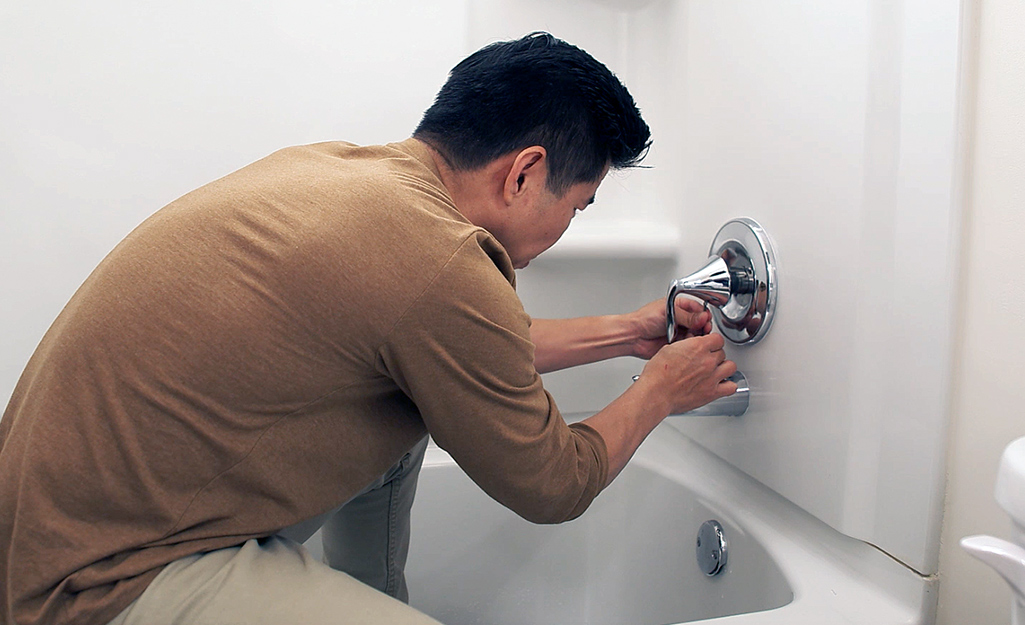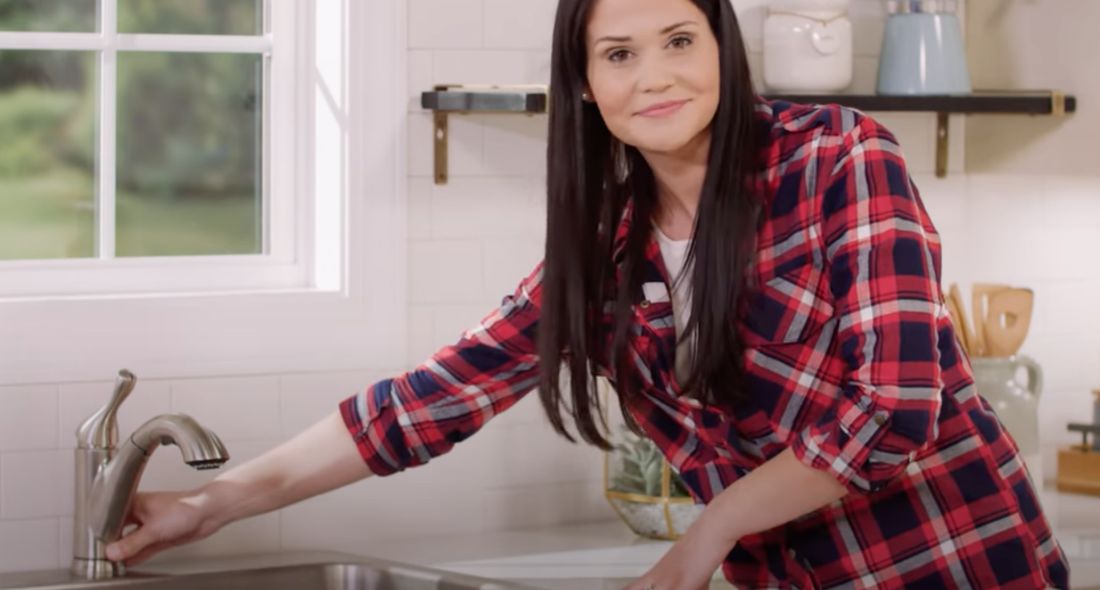What It's Critical to Mend a Broken Faucet
What It's Critical to Mend a Broken Faucet
Blog Article
Here on the next paragraphs you'll find some wonderful expertise related to Leaky Faucets: Why They Happen & What to Do About Them.

Dripping faucets may feel like a small inconvenience, but their effect exceeds just the inconvenience of the sound. From wasting water to incurring unnecessary financial costs and health risks, ignoring a dripping tap can cause various consequences. In this article, we'll explore why it's essential to resolve this usual house concern immediately and successfully.
Waste of Water
Environmental Influence
Leaking faucets contribute dramatically to water wastefulness. According to the Environmental Protection Agency (EPA), a solitary tap dripping at one drip per secondly can squander more than 3,000 gallons of water annually. This not only stress water resources yet also influences communities and wild animals dependent on them.
Financial Expenses
Increased Water Expenses
Past the environmental impact, leaking taps can inflate water bills considerably. The built up wastefulness in time converts into greater utility costs, which can have been avoided with prompt repairs.
Prospective Property Damages
In addition, prolonged trickling can result in harm to fixtures and surfaces surrounding the faucet. Water accumulation can cause discoloration, rust, and also architectural issues if left ignored, resulting in added repair work prices.
Health and wellness Problems
Mold and Mold Development
The constant existence of dampness from a dripping tap develops an optimal setting for mold and mildew and mildew growth. These fungi not just endanger indoor air top quality yet additionally pose health dangers, especially for individuals with breathing problems or allergic reactions.
Waterborne Illness
Stagnant water in trickling taps can come to be a breeding place for microorganisms and various other microorganisms, enhancing the risk of waterborne diseases. Impurities such as Legionella bacteria thrive in stagnant water, potentially leading to significant health problems when ingested or breathed in.
Do it yourself vs. Professional Fixing
Benefits and drawbacks of Do It Yourself Repair
While some might attempt to repair a dripping tap themselves, do it yourself repair work come with their very own set of challenges. Without correct understanding and tools, do it yourself attempts can aggravate the problem or lead to insufficient repair work, lengthening the issue.
Advantages of Employing a Specialist Plumber
Hiring a specialist plumber guarantees that the underlying source of the dripping faucet is resolved efficiently. Plumbings possess the knowledge and devices to diagnose and repair faucet concerns efficiently, saving time and lessening the threat of additional damage.
Step-by-Step Guide to Fixing a Dripping Tap
Tools Required
Prior to trying to repair a dripping tap, gather the necessary devices, consisting of an adjustable wrench, screwdrivers, replacement components (such as washers or cartridges), and plumber's tape.
Usual Faucet Issues and Their Solutions
Recognize the type of tap and the particular concern causing the drip. Typical problems consist of worn-out washing machines, corroded valve seats, or damaged O-rings. Refer to maker guidelines or online tutorials for detailed advice on repair work.
Safety nets
Normal Upkeep Tips
To avoid trickling taps, perform routine maintenance such as cleaning up aerators, checking for leakages, and changing damaged components without delay. In addition, take into consideration setting up water-saving devices or upgrading to much more reliable components.
Significance of Prompt Services
Dealing with dripping faucets as quickly as they're observed stops additional water wastage and possible damages, inevitably saving both water and money in the future.
Effect On Building Worth
Perception of Well-Maintained Property
Preserving a residential property in good condition, including resolving maintenance concerns like dripping taps, improves its perceived value and worth among prospective customers or renters.
Impact on Resale Worth
Residences with properly maintained plumbing fixtures, including taps, command greater resale values in the real estate market. Resolving dripping faucets can contribute to a positive impression during home assessments and settlements.
Environmental Duty
Private Contribution to Preservation
Taking responsibility for fixing dripping faucets aligns with broader efforts towards water preservation and ecological sustainability. Every individual's actions collectively make a significant influence on maintaining valuable resources.
Sustainable Living Practices
By prioritizing punctual repair services and embracing water-saving habits, people add to sustainable living techniques that benefit both present and future generations.
Verdict
Dealing with a trickling tap goes beyond plain benefit; it's an essential action toward preserving water, decreasing economic expenses, and guarding health and wellness and building. Whether with do it yourself repairs or expert aid, taking action to take care of dripping faucets is a little yet impactful means to promote responsible stewardship of resources and add to a much healthier, more sustainable future.
Why Are My Faucets Dripping (And Can I Fix it Myself)?
Causes of a Dripping or Leaking Faucet
Whether you’re hearing drops of water falling and hitting a sink, or noticing water ooze out from the base of the spout, you shouldn’t ignore a dripping or leaking faucet. And, the good news is, sometimes you can fix the problem yourself.
In this article, we’ll review a few common causes of dripping and leaky. We’ll also walk you through some basic ways to find the problem and handle it without calling anyone — and let you know when to call in a pro.
But, no matter what the cause, or whether you can handle it on your own, the sooner you address it, the better.
Each drip may be a tiny amount of water. But, they all add up quickly. According to the U.S. Geological Survey, one faucet losing one drop every 20 seconds — five a minute — wastes around a liter of water every day, and 173 gallons a year.
Add in more than one in your house, and it’s a lot of water to waste. So, we’ll help you get to the bottom of things quickly.
Four Reasons Your Faucet May Be Dripping
Aerator is Damaged or Unseated Valve Seat is Corroded O Ring is Loose or Worn Out Part of the Assembly is Loose Aerator is Damaged or Unseated
If you unscrew the end of your faucet, you’ll find the aerator. It’s the little stem piece with a screen on it that shuts off the water circulation.
If it’s damaged, or if it’s not sitting right, it will allow water to pass through.
Valve Seat is Corroded
Next is the valve seat, which is connected to the washer. If the washer wasn’t in place correctly, then it could have ground against the seat. Over time, this damages the valve seat.
The problem could also be corrosion: Over time, the part has worn out, and it’s now allowing water to pass through.
O Ring is Loose or Worn Out
Since the o ring is only a small rubber gasket, it’s a common reason why the faucet is dripping. You’ll find it at the base of the faucet, and it’s there to keep water from coming out where it’s not supposed to.
However, it’s common for the o ring to wear out over time. When it does, you’ll notice a drip.
Part of the Assembly is Loose
So far, we’ve looked at a few small, specific parts. But, the problem could be anywhere in the assembly if something’s out of place.
Even if a part isn’t damaged, over time, it may have become loose or dislodged. It could be the parts we mentioned, or the aerator at the tip of the faucet, the stem itself,
Can I Fix a Leaky Faucet Myself?
Depending on the problem, and how handy you are, there’s a chance you can fix a leaky faucet without calling a professional. But, you do run the risk of making the problem worse.
If it’s a small drip, you can certainly try a few troubleshooting tactics. We’ll walk you through them in a moment.
But, no matter what, your first step should be shutting off the water coming into the faucet. You should find a shutoff valve under the sink on the pipes leading to it. Turn each one clockwise until they close tightly.
Next, make sure you have the right tools for whatever you’re attempting. It’s tempting to make do with what you have. But, you need the right ones for a reason: You’re often dealing with small parts that can break if you handle them carelessly.
If you’re feeling confident, here are some places to start.
Items Near the Tip of the Faucet
A few of the parts we mentioned — particularly the valve seat and washer — are located at the tip of the faucet where the water comes out. They’re easy to access, making it a good place to start.
Check the O Ring
To check the o ring, you’ll need to take off the spout at the base. It’s easiest on kitchen sinks with long spouts, versus the smaller, bulkier base on most bathroom sinks.
Either way, this can be tricky, so do it carefully and don’t force anything. If it’s not coming right off, you’re much better off calling in a pro than possibly breaking something.
For a kitchen sink, there’s usually a nut or coupling assembly at the base of the spout. These often slide off easily without using any tools.
Once you’ve disassembled those parts, gently but forcefully twist off the spout.
Then, you can see the o rings. There should be two of the rubber gaskets on the base. If they look worn or damaged, replace them, and see if that solves the problem.

I have been very interested by Water Dripping from Faucet: Why and How to Fix and I'm hoping you appreciated the entire page. Feel free to set aside a second to share this blog if you appreciated it. We love your readership.
Report this page